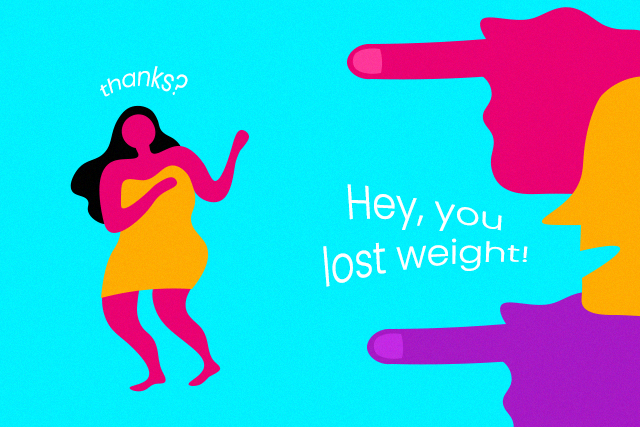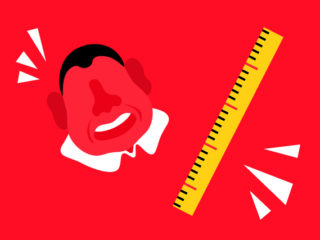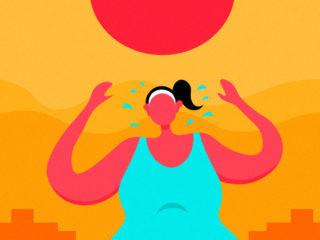
Ever since I was a kid, I was told my thighs were too big, and that I should get into sports so my legs would look thin and toned like my cousins. When I was 16-17 years old, my weight drastically dropped due to multiple illnesses. The same people told me I looked sickly and that I should gain more weight.
Fast forward to today, it’s safe to say I was able to bounce back to a healthier state after I got cured. But I would still hear people telling me either “Ang payat mo” (You’re so thin) or “Ang taba mo na ngayon” (You look fat now). They are both meant as compliments, but should I be thanking them when they feel like subtle digs for me to work out to get to an “ideal size”?
READ MORE: Why we need to get over fatphobia and body shaming ways
Our society dictates what’s acceptable in terms of body size. They claim that you have to be skinny and muscular to be deemed attractive, sexy, and healthy. But when the flabs show up, you are immediately physically ugly or on your way to obesity.
So when someone is told they look skinnier, they’re immediate response is “Thank you.” They then talk about how they lost the extra pounds.
In the past few years, I’ve learned to love my body and brush off backhanded comments about it. The body positivity movement taught me and many women to do so. But at the back of my mind, I would find myself thinking I don’t look “enough” because I don’t have abs and clear skin, and I’m not athletic—all equating to society’s standard of acceptable beauty, even in body-positive terms.
READ MORE: What body positivity really means
Here’s the deal: Loving the body you have and telling yourself you’re beautiful is different from accepting despite all the flaws. This brings us to body neutrality, which “aims to encourage you to accept the body you are in and focus on its achievements, rather than its appearance.”
Time cited that body positivity was created for plus-size women to reclaim the word “fat.” As years went by, many felt excluded by the movement. As Stephanie Yeboah told the Guardian, “Now, in order to be body positive, you have to be acceptably fat—size 16 and under, or white, or very pretty. It’s not a movement that I feel represents me any more.”
Whereas neutrality means you have to look at your body without a assigning value to it. This dismantles the idea that you have to look a certain way to feel contentment. Basically, if you feel happy with yourself and appreciate you body’s strengths, then what you look on the outside shouldn’t affect your perception of yourself. Likewise, it teaches you to not hate yourself if you dislike something about your body.
To put it simply from Anuschka Rees’ book, Beyond Beautiful: “Understand that your outer shell is only a single, not all that interesting part of yourself.”
One perfect example is dancer Whitney Thore, who has candidly talked about gaining weight because of PCOS. She is a woman who constantly breaks the “fat” stereotype, and shows everyone how she stays on top of her health while still raising a middle finger on what’s considered “attractive and normal” in societal standards. “Being fit and healthy, none of that is exclusive to the size of your body. All the negative stereotypes of fat people, I try to crush that,” she told us last December.
So, when someone compliments your body size, you shouldn’t answer with gratitude. A person’s worth shouldn’t be measured based on their exterior. If you think they are beautiful and smart, state it. Weight has nothing to do with this.
Now, I’m looking past the phrases I’ve heard my whole life—”You are fat because of your thighs” and “You are ugly because of your scars”—and ultimately being okay with how I look. I’ve allowed myself to dress and present in a way that’s comfortable for me, not based on what society people around me have deemed appealing for my body.
Art by Marian Hukom
For the latest in culture, fashion, beauty, and celebrities, subscribe to our weekly newsletter here
Follow Preen on Facebook, Instagram, Twitter, YouTube, and Viber
Related stories:
Why fat-shaming shouldn’t be used to motivate people
Emily Ratajkowski thinks her body type shouldn’t be THE beauty standard
What body positivity means to Whitney Thore
Gabbi Garcia is the body-positivity queen we deserve


